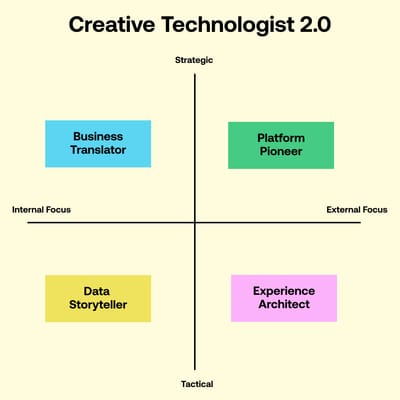Signal vs ability, illicit activities, and the future of work
This Twitter thread from Josh Wolfe caught my attention earlier this week.
1/ Here are some REALLY interesting findings from a controversial empirical paper asking:
*WHY do some people become ENTREPRENEURS?*
Of the many findings + hypotheses, a few stand out
-SIGNALING theory
-REJECTING a system that REJECTS them…— Josh Wolfe (@wolfejosh) April 1, 2018
Citing a paper from a few years ago written by an MBA student at NYU Stern, it goes some way to explaining why people become entrepreneurs.
The paper states:
Individuals signal their hidden ability to employers (i.e. via educational qualifications).
However, signals are imperfect and individuals with greater ability than their signals convey to employers become entrepreneurs
Quite simply, if a person feels employers perceive their ability/productivity as being lower than they themselves perceive it, they’re incentivised to start their own ventures.
Josh notes that individuals with ACTUAL ability that EXCEEDS the SIGNAL value of their ability (i.e they know they are better than employers can tell from credentials)…become entrepreneurs.
This isn’t to say they are necessarily exceptionally able, it’s just that their ability exceeds the signal. If you take a few steps back from this it appears for today’s job market, especially on the employer side, there’s a huge issue around signalling.
This signalling often comes from higher education – for example Steve Jobs was rejected by HP because of his lack of degree. Many companies will immediately reject candidates if they don’t have an MBA (and yes the irony of the cited paper being written by an MBA isn’t lost on me…).
With increasing student debt and work skills rapidly changing, a growing number of people are now openly questioning the value of higher education and MBAs, suggesting that the main two reasons for enrolling are the i) alumni network, and ii) a school’s brand reputation (i.e. the most obvious form of signalling).
Additionally;
Overconfident, hubristic individuals gravitate toward be entrepreneurs…AND…tend to have higher ability, greater self-esteem AND more likely to have done “illicit activities” than others.
I’ve long had an ambivalence towards current higher education systems (and frankly authority more broadly).
In more lucid moments I also recognise that in certain situations I have very strong hubris.
I’ve never been quite able to pin down why this is, but this thread and the related paper helped me figure it out.
My level of ability vs signal is and has long been imbalanced for the traditional job market.
Taking this a step further, Josh looks at immigrant founders, of which they are many successful ones especially here in the US.
10/ So many stories of great IMMIGRANT founders, here's empirical logic WHY more become entrepreneurs(!):
IMMIGRANTS may have had "less credible ability signals" for "regular" jobs
+
Why friends/family are dominant source of $ at start when asymmetric info of ability is at max pic.twitter.com/VkyFMVe88i— Josh Wolfe (@wolfejosh) April 1, 2018
Moving to the US as an immigrant has pushed me go on a voyage of discovery and to ask a lot of questions about myself.
I don’t mind admitting it’s been a hard journey.
My low level of signalling (eclectic background, moderate level of education, and lack of brand name social proof) have meant the ‘regular’ job market doesn’t fit well at all.
I reject the system that rejects me, and now feel almost forced down the path of entrepreneurship, or independent work at least.
Understanding these feelings has been one of the biggest challenges and also breakthroughs of my time here in NYC, especially since finding a tribe of others in the same boat.
I was a little bitter about it to begin with, but now I embrace it.
It’s led me to think more deeply about the world of work and where there are opportunities to make things better for the next generation about to join the workforce. The combination of the current higher education system being eroded, a changing world of work, and more people with an ability vs signal imbalance is going to have a huge effect on employers, talent and economies.
Around 50% of Gen Z are identifying as entrepreneurs, millennials are job-hopping like never before, and a growing freelance and independent workforce is appearing all over the place.
These shifts make me wonder how this is going to pan out on a broader scale, particularly as based on the paper’s findings (and lots of other research) not everyone is going to be able to succeed as a entrepreneur.
This then begs the question of what happens to those who don’t make it.
Do they go back to employment?
Or maybe forge a career as a specialised gun for hire?
Perhaps there’s a 3rd option, the evolution of something Tiago Forte calls the ‘full stack freelancer’.
What interests me most are the structures to support those who take the third option and also those that can’t/don’t/won’t do any of the above.
What will that look like?
Ventures that enable hyper sampling of multiple careers?
A completely different type of freelance work?
‘Micro accelerators’ that help companies build only to a founder’s ceiling of competence, avoiding the Peter Principle?
Wacky ideas perhaps, but it’ll be interesting to see what happens when the dam eventually breaks and the number of workers wanting to go their own way (the ‘cherries’) outnumber the ‘lemons’.
Or perhaps the signals, the system and the value we place on them need to fundamentally change.
I believe this is going to be one of the most exciting, impactful and maybe controversial areas of the next 5-10 years.
I can’t wait to see how tomorrow’s world of work and entrepreneurship unfolds, and I’m exploring this myself through my Fondo project. If you’re interested in this space I’d love to hear your thoughts – add a comment here or drop me a line
No spam, no sharing to third party. Only you and me.





Member discussion